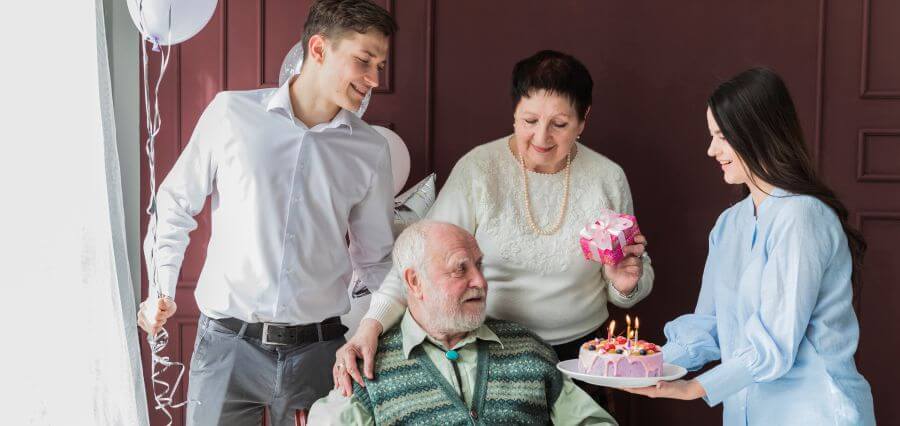Choosing a nursing home for an elderly family member is a decision influenced by trust and the expectation of diligent, compassionate care. As our population ages, more families turn to these facilities to ensure their loved ones receive the attention and medical care they need. This growing reliance on nursing homes underscores the necessity of maintaining stringent safety and care standards within these institutions.
In this landscape, dedicated legal advocates like Burger Law become indispensable. Specializing as St. Louis nursing home abuse lawyer, the firm is a staunch defender of elder rights, ensuring that neglect and abuse do not go unchecked. Burger Law is committed to protecting our society’s most vulnerable members, championing the cause of safety and dignity for all residents in long-term care.
Understanding the Standards of Nursing Home Care
Navigating the regulatory landscape of nursing home care is crucial for ensuring that facilities adhere to high standards. Federal and state guidelines dictate the baseline for how nursing homes must operate, covering everything from staffing ratios to the procedures for handling resident complaints. These regulations are designed to protect residents and foster an environment where high-quality care is the norm. Discover how you can experience compassionate hospice care service in Orange County.
Quality care in nursing homes is about more than just meeting physical needs—it involves comprehensive engagement with each resident’s health, happiness, and overall well-being. This includes personalized care plans that are routinely updated to reflect each resident’s evolving health status and preferences. Regular assessments are critical, as they ensure that the care provided continues to align with the best interests and needs of the individual.
Signs of Quality Care in Nursing Homes
Several key indicators can help discern a nurturing environment for loved ones in nursing homes. A responsive and caring staff is the cornerstone of a quality facility. Interaction between caregivers and residents should be frequent and personal, indicating genuine concern for the residents’ well-being.
The physical condition of the facility also plays an essential role. A clean, well-maintained home without safety hazards is fundamental, reflecting the institution’s commitment to excellence and resident safety. Moreover, positive feedback from residents and their families often provides the most telling insight into the life within the nursing home, offering real-life endorsements of the care provided.
Recognizing Warning Signs of Neglect and Abuse
Despite stringent regulations, neglect and abuse in nursing homes still occur. Recognizing the warning signs can be pivotal in safeguarding residents. Physical symptoms such as unexplained injuries or frequent falls may indicate neglect or harsh treatment. Emotional withdrawal or a sudden behavior change can also be significant alerts, suggesting psychological abuse or neglect.
Moreover, signs of poor hygiene or unresolved health issues often reveal inadequate care. These indicators necessitate immediate inquiry and action to ensure the safety and dignity of the affected residents.
Steps to Advocate for a Loved One
Advocating for a loved one in a nursing home is an active, ongoing process. Regular visits can play a critical role, as they boost the resident’s morale and help families stay informed about the quality of care and daily operations. Engaging positively with the care staff can foster a collaborative relationship that benefits the resident.
Understanding residents’ rights within the nursing home and the broader legal framework is also critical. Keeping meticulous records of any issues or irregularities and how they are addressed can be essential if further action is needed.
Legal Framework Surrounding Nursing Home Care
The legal protections for nursing home residents are robust, designed to shield them from neglect and abuse and to ensure their rights are respected. A nursing home abuse lawyer in St. Louis, such as those at Burger Law, plays a pivotal role in this landscape. These professionals advocate for mistreated residents and are crucial in guiding families through the complexities of monitoring and enforcing care standards.
The Importance of Community and Family Involvement
Community and family involvement is invaluable in elevating the standards of care in nursing homes. Active family councils and community oversight can drive improvements and foster transparency, ensuring facilities are held to the highest standards. These groups often work closely with nursing homes to address concerns and implement programs that enhance resident life and care.
The Impact of Advocacy on Nursing Home Reform
Advocacy profoundly impacts nursing home reform, often leading to significant improvements in care and legal standards. Through persistent efforts, legal experts and family advocates have succeeded in bringing about changes that have reshaped the landscape of elder care. By pushing for systemic changes and raising awareness, they ensure that nursing homes not only comply with existing laws but also strive to exceed them, placing the well-being of residents at the forefront of their mission.
Together, these sections form a comprehensive guide that supports families in navigating the complex world of nursing home care, armed with knowledge and advocacy strategies to protect their loved ones.
Conclusion
Ensuring the safety and care of loved ones in nursing homes is multifaceted, requiring vigilance, knowledge, and proactive advocacy. By understanding the standards and signs of quality care, recognizing the warning signs of neglect and abuse, and engaging actively with care providers and legal resources, families can significantly impact the well-being of their elderly relatives. Advocacy, both at the individual and community levels, protects residents and drives essential reforms in elder care. Through dedicated efforts, including legal expertise from firms like Burger Law, we can help ensure that nursing homes are safe havens of care and dignity for all residents.


